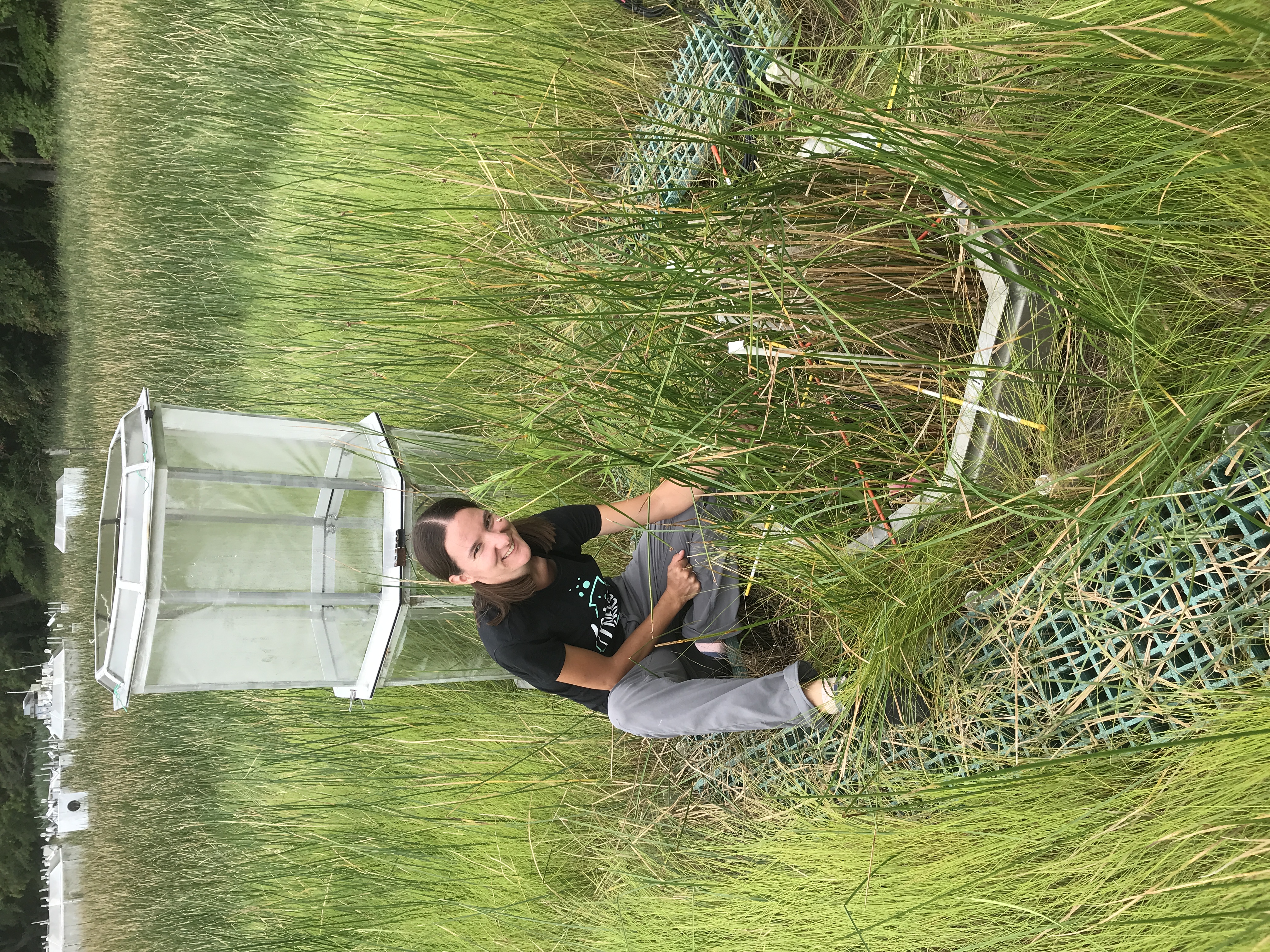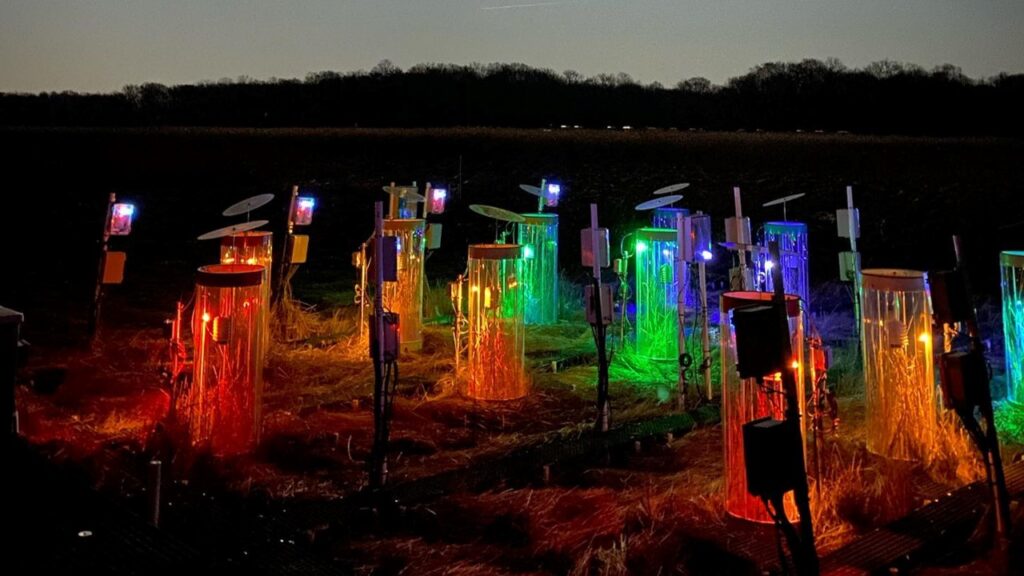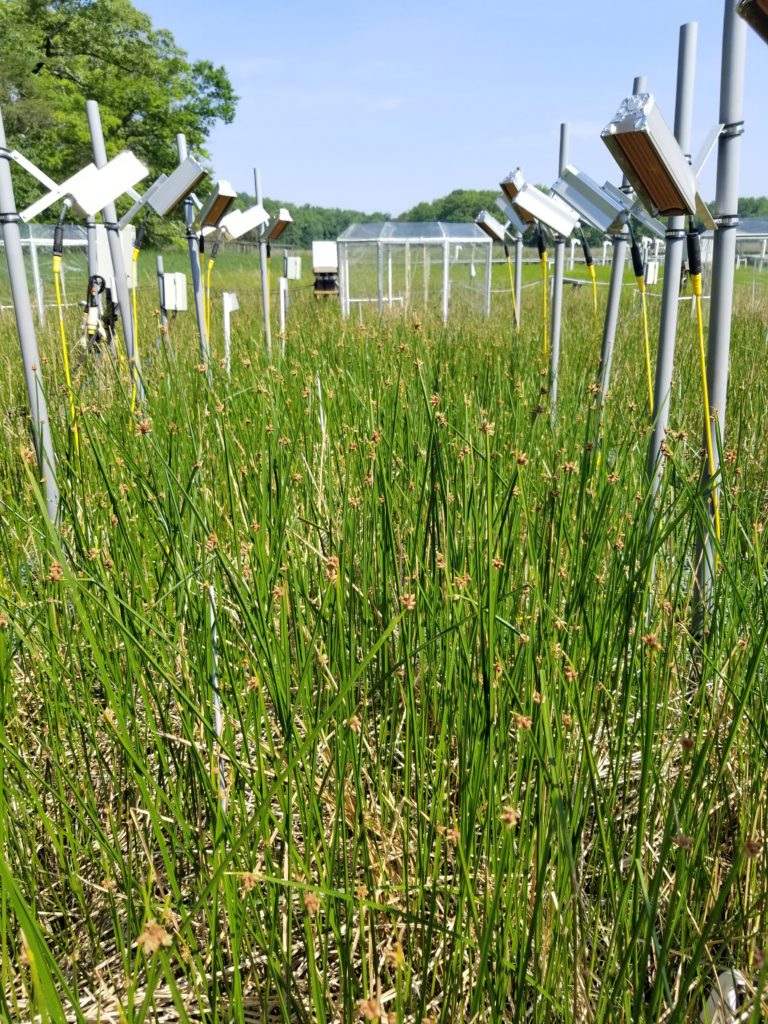by Jaylene Lopez

In this Q&A, Genevieve Noyce unveils her new lab, the Global Change Ecology Lab, at the Smithsonian Environmental Research Center (SERC). Her previous work in global change led her to take this position as Principal Investigator. She is also a coprincipal investigator at the center’s Global Change Research Wetland, or GCREW, which predicts the effects of climate change on coastal wetlands by fast-forwarding to the year 2100. At her current projects, SMARTX and GENX, she studies the effects of warming and CO2 on wetlands, to simulate how climate change will alter Earth’s soils. Her new lab will continue to explore how global change is affecting our ecosystems.
Below is a transcript of our conversation, edited for clarity and brevity
Congrats on your lab! How are you feeling?
Pretty cool!
Your GENX and SMARTX experiments showed how changes in temperature and other aspects of climate change affect wetland ecosystems. Why is this research on wetland ecology important?
We know that global temperatures are rising, and we want to know what the ecosystems and coastal wetlands are going to look like in this warmer environment…. That will let us get a bigger picture of what the world will look like in the future.
What are your initial goals for your new lab?
What I’ve been doing during my time at SERC thus far is mostly looking at these warming experiments at GCREW. I want to expand on that a little bit. My background is in microbial ecology, so I am looking at what microbes live in the soil and trying to figure out how they respond to various things, which can include global change.
I want to push my lab towards doing not just biogeochemistry as part of the Biogeochemistry Lab [where Genevieve previously worked], but also kind of merging biogeochemistry and microbial ecology to look at these global change questions.
What benefits will this new lab have on global change research?
SERC does a lot of global change already. That’s kind of one of the things the whole of SERC is looking at—a better understanding of the Chesapeake Bay ecosystem and then understanding how it’s going to change in the future.
I think that my lab is bringing just another piece of that, that sort of fits in.
We don’t have anybody looking at this biogeochemical microbial ecology link in global change right now.

Any present issues? So far, so good?
No! So, far so good!
Any foreseeable issues at all?
It’s always a question of, in order to do research, you’ve got to convince someone to pay for it. All of SERC’s research is grant funded, so right now I have these grants that run SMARTX and GENX and what not. But, as I want to branch out to these new things, I need to be able to write proposals that would bring in money to fund these new projects.
That’s usually what scientists say is an obstacle!
I mean, I’m lucky in that I work out at GCREW, which is well funded, and we have many ongoing projects. We have a lot of things to pull from, so I can do a lot of research that doesn’t rely purely on getting new grants. But new directions require new money, yes.

What do you predict for the future of this lab and global change research?
I’m not sure I’ve thought about the future that far in advance.
I think right now my lab is very small. It’s me and a tech and postdoc, and we work closely with the Biogeochem Lab, which I’ve been in. In the future, I envision bringing in more people to continue doing this kind of research. This probably works into that branching out in new directions, right?
…
I guess starting up new projects and new experiments is the way that global change research is going in the future. SMARTX does this well in looking at multiple global change factors. We have warming and CO2 in the same plots. So rather than just looking at what happens when you only have one thing changing, what happens when you have multiple things changing and how that affects the ecosystem as a whole.
What are you most excited about?
I’ve been at SERC for almost six and a half years at this point, so [I am excited about] the fact that I can stay at SERC and keep building on all this research and the collaboration that I’ve made over the past six years.
It’s nice to know these experiments like SMARTX that I’ve been working on, or GENX that I’ve started, can keep going because I’m still going to be here and be able to run them.
Learn more about Genevieve Noyce’s work:
What’s the Perfect Temperature to Bake Your Soil?
Meet More SERC Scientists:
Rebecca Hale: City Streams and the Future of Urban Ecology
Justin Nowakowski: The Global Zoologist
Sarah Donelan: How Parents Prep Offspring for Tough Lives Before Birth
Shelley Bennett: What’s “Normal” Eating in a Maryland Forest?

